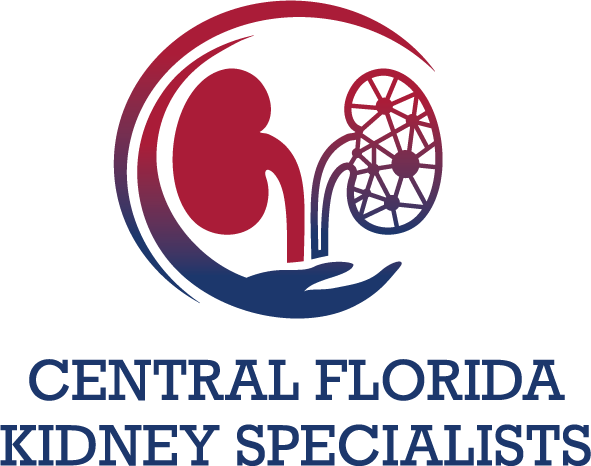Understanding the Science of Nephrology in Central Florida
What is a Nephrologist?
A nephrologist is a medical doctor who specializes in kidney care and treating diseases of the kidneys. The term nephrologist comes from the Greek word “nephros,” which means kidney or renal, and “ologist” refers to someone who studies. Nephrologists are also called kidney doctors. Nephrologists are educated in internal medicine and then undergo more training to specialize in treating patients with kidney diseases. They commonly treat chronic kidney disease (CKD), polycystic kidney disease (PKD), acute renal failure, kidney stones, and high blood pressure, and are educated on all aspects of kidney transplantation and dialysis.

Becoming a Nephrologist
Nephrology is categorized as a specialty of internal medicine. Nephrologists must graduate from an approved medical school, complete a three-year residency in internal medicine, and pass the American Board of Internal Medicine (ABIM) certification exam before they can begin to study nephrology.
Once they have passed the ABIM exam and been accepted into a nephrology program, they must complete a two- to three-year fellowship in nephrology. This fellowship must be accredited by the Accreditation Council for Graduate Medical Education (ACGME).
Nephrology Facts
As a long-established, reputable, and dedicated provider of kidney care, Central Florida Kidney Specialists emphasizes the role of education in improving quality of life and maximizing the success of treatment outcomes. It all starts with the facts about kidneys, nephrology care, and Central Florida Kidney Specialists. Here they are:
Kidney Function
Nephrology is the study and treatment of kidney disorders and kidney function. The kidneys are essential for removing waste products and extra fluid from the circulation.
Chronic Kidney Disease (CKD)
The common disorder known as chronic kidney disease (CKD), which is treated by nephrologists, is marked by a progressive decrease of kidney function over time and frequently results in consequences like high blood pressure, anemia, and bone damage.
Dialysis
Dialysis, which entails using a machine to filter waste and extra fluid from the blood when the kidneys can no longer efficiently perform this function, is managed by nephrologists for patients with renal failure.
Transplantation
Nephrologists are experts in kidney transplantation; they oversee immunosuppressive medication administration to avoid organ rejection, pre-transplant evaluation, and post-transplant care.
Hypertension Management
Nephrologists are trained to treat hypertension, a common risk factor for kidney disease, by lowering blood pressure and protecting renal function using medication and lifestyle changes.
Electrolyte Imbalance
Nephrologists treat electrolyte abnormalities, which can result from renal failure and cause problems, including weakening of the muscles or irregular heartbeats. Examples of these imbalances include excessive potassium or low calcium levels.
Research & Innovation
Nephrology is a field that includes continuous research and innovation with the goals of improving patient outcomes, expanding our knowledge of kidney diseases, and creating novel medicines.
Multidisciplinary Care
In order to provide complete support customized to each patient’s needs, nephrology care frequently entails collaboration with other healthcare specialists, such as dietitians, social workers, and transplant coordinators.
For Nephrology & Kidney Care Done Right, Call Us Today!
Quick Links
Contact Information
Proud Members of:
National Kidney Foundation of Florida
Florida Society of Nephrology (FSN)
Business Hours
- Mon - Fri
- -
- Sat - Sun
- Closed
Payment Options:












